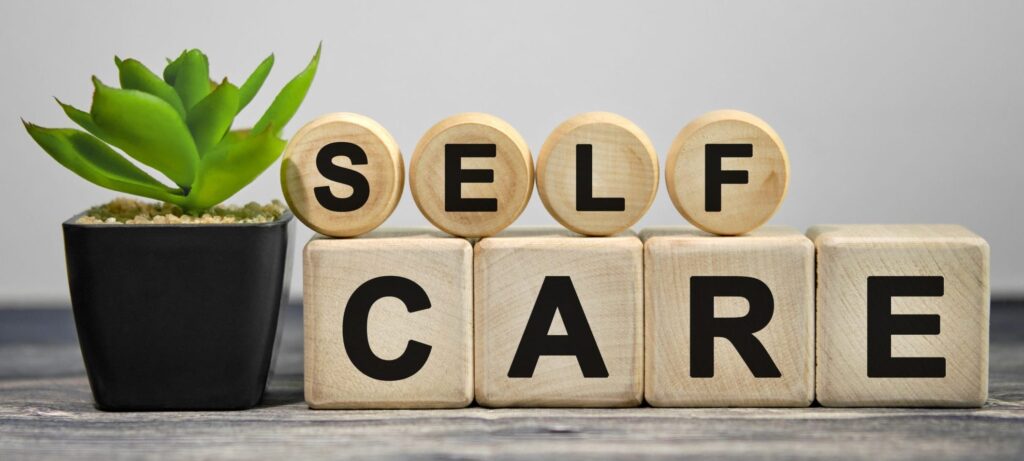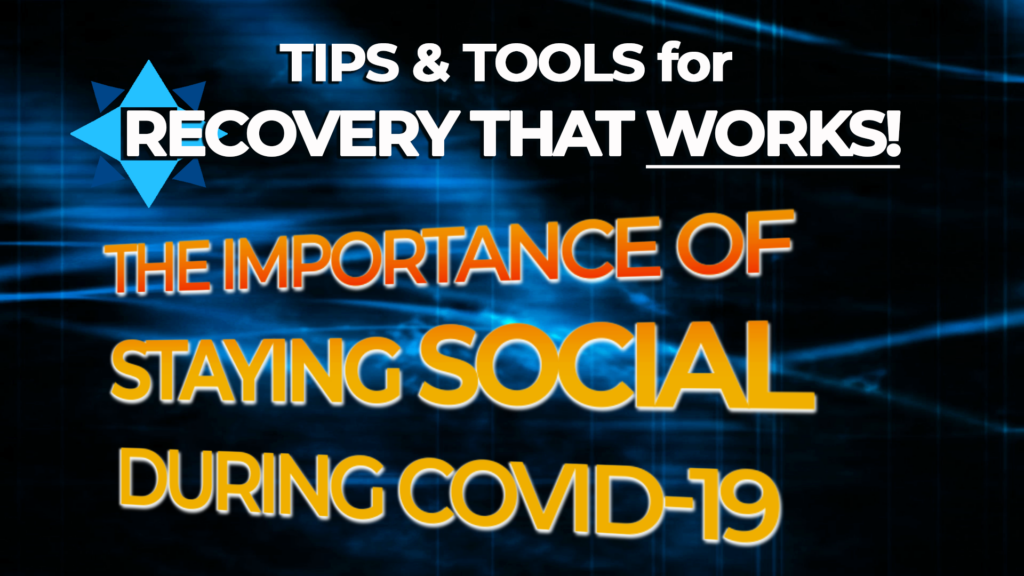 Jerianne Klein tried “tough love” approaches to deal with her loved one’s substance abuse issues. Support groups and one-on-one sessions left her feeling directionless. Searching for a family-focused option that would instill hope, Jerianne discovered SMART Recovery. “I held onto every word,” she says. SMART Recovery tools helped Jerianne and her family stay calm and rational through the “dark days […]
Jerianne Klein tried “tough love” approaches to deal with her loved one’s substance abuse issues. Support groups and one-on-one sessions left her feeling directionless. Searching for a family-focused option that would instill hope, Jerianne discovered SMART Recovery. “I held onto every word,” she says. SMART Recovery tools helped Jerianne and her family stay calm and rational through the “dark days […]
By: Elinore F. McCance-Katz, M.D., Ph.D., Assistant Secretary for Mental Health and Substance Use
Each and every day, SAMHSA works to ensure that substance misuse is prevented in America’s communities and that our nation’s mental health is strong. May marks Mental Health Awareness Month and this week, marks National Prevention Week.
The value of prevention cannot be overstated. Particularly, in these difficult times, we know that many may turn to substances to cope with the new stressors we are all now faced with. I have been inspired by community prevention efforts across this country. Preventionists who have already dedicated themselves to this cause have redoubled their efforts to create innovative solutions to provide prevention services while observing social distancing and stay-at-home orders.
 Provided by SMART Family & Friends Facilitator, Ellen Kolton, MPH Laura arrives a few minutes late to the Family & Friends meeting that I facilitate, looking like a seasoned country singer in her wide-brimmed suede hat. A bit breathless, she comes from her weekly volunteer job, distributing surplus food from supermarkets to local food pantries and homeless […]
Provided by SMART Family & Friends Facilitator, Ellen Kolton, MPH Laura arrives a few minutes late to the Family & Friends meeting that I facilitate, looking like a seasoned country singer in her wide-brimmed suede hat. A bit breathless, she comes from her weekly volunteer job, distributing surplus food from supermarkets to local food pantries and homeless […]
 Molly Magill’s interest in psychology and social work started in high school and grew into her passion and ultimately, her career. She earned her bachelor and graduate degrees from Boston University and a certificate in alcohol and substance abuse studies from the University of Massachusetts. Dr. Magill is an associate research professor in the Department […]
Molly Magill’s interest in psychology and social work started in high school and grew into her passion and ultimately, her career. She earned her bachelor and graduate degrees from Boston University and a certificate in alcohol and substance abuse studies from the University of Massachusetts. Dr. Magill is an associate research professor in the Department […]
Discovering Yourself and YOUR Own “Normal” in Recovery
Normal (adjective) – conforming to a standard; usual, typical, or expected.
At some point in each of our lives, we’ve all wondered what it means to be “normal”. In the last couple of months, the entire planet’s existing idea of the word has been challenged. Many have found themselves struggling to adapt to the new standards of normal–working from home, limited contact with others, and so on. But what about for those in recovery?
Sobriety reshapes your entire lifestyle. When in recovery, the focus of your life shifts away from substance use and towards self-care. What was once “normal” to you, eventually may become something altogether foreign. One of the keys to successful long-term recovery is establishing a new sense of normalcy in your life and accepting it as a better alternative to your past life when you were actively addicted.
Here are some easy tips to help you re-define your very own “normal” and enjoy your life in recovery:
Focus on figuring out who you are without the disease.
A good starting place to establish your sense of normal is to ask yourself, “Who am I?” If this is something you struggle to answer, perhaps try to think about how you’d describe yourself to a stranger, or how a close friend might describe you to others. Are you pleased with these descriptions? Who do you want to be? Self-improvement is a constant, endless process of discovering things about oneself. Take inventory of the things you enjoy about yourself, and the things that you do not. Set small, but achievable goals to improve what you can each day.Reflect and discover new passions.
Oftentimes, substance use can distract you from things you once prioritized and cared about. This could be artistic passions such as music, cooking, and painting, or even activities such as spending time with your friends and family. Whatever it is that brings you joy and feeds your soul, seek those things out and do them often. Sobriety doesn’t mean that life cannot be fun or exciting–in fact, it’s quite the opposite.Accept and become comfortable with idle time.
Staying busy can be a positive coping strategy for those in recovery. However, it is important to accept that idle time will eventually present itself. Sometimes, you will experience boredom. Part of rediscovering yourself is learning to accept downtime, and even relish in it. Rest is a wonderful thing. While you’re discovering your own identity, set a routine for your days and stick to it–but build in time to do nothing! Use time like this to reflect on your day. Journaling is a great way to document your feelings, sort through your thoughts, and can even be used to track your progress.Use the tools you’ve been taught along the way.
You don’t have to reinvent the wheel. Use the things you learned in treatment because they work! Review your 12-steps often, log-in to meetings online as often as you need to, and stay connected with your recovery network.Have patience and embrace the unknown.
While finding a new normal for your life can certainly be a challenge, it’s important to remember that it doesn’t have to happen overnight. In fact, it definitely won’t. The initial stages of life after addiction are tough. Your brain is figuring out how to operate without substances and this can impact you emotionally and physically. Pushing through the speed bumps that present themselves in early recovery will help build a strong foundation for long-term success in your journey. Don’t rush yourself or the process of changing your life for the better. None of us can foresee the challenges tomorrow may bring but if you equip yourself with the proper recovery tools–you will be ready for anything that comes your way.
About Fellowship Hall
Fellowship Hall is a 99-bed, private, not-for-profit alcohol and drug treatment center located on 120 tranquil acres in Greensboro, N.C. We provide treatment and evidence-based programs built upon the Twelve-Step model of recovery. We have been accredited by The Joint Commission since 1974 as a specialty hospital and are a member of the National Association of Addiction Treatment Providers. We are committed to providing exceptional, compassionate care to every individual we serve.
 Stefan Neff, a meeting facilitator in Vancouver, British Columbia, Canada, fell in love with SMART Recovery at his first meeting. He immediately thought, “wow, this is fantastic!” His favorite aspect of SMART is the connection to science and the tools used, like A. B. C. and C.B.A. worksheets. Within a month, Stefan became a meeting […]
Stefan Neff, a meeting facilitator in Vancouver, British Columbia, Canada, fell in love with SMART Recovery at his first meeting. He immediately thought, “wow, this is fantastic!” His favorite aspect of SMART is the connection to science and the tools used, like A. B. C. and C.B.A. worksheets. Within a month, Stefan became a meeting […]
RISE20 Virtual is just a few weeks away, but there is still plenty of time to register! While this year’s conference will look different from years past, attendees can expect the same top-quality education delivered in a dynamic virtual platform that will allow for live Q&A with presenters, communication and collaboration with fellow professionals via chat, one-on-one support from NADCP training division staff, and a robust virtual expo hall.
In light of the COVID-19 pandemic, NADCP has added new content to help treatment courts respond effectively, including:
Drug Testing in Treatment Courts in a ‘New Normal’ World: 2020 Update
Presenter: Paul Cary
This presentation is designed to address the challenges of drug testing in this new environment, concentrating on specimen choice and safe collection strategies.
Predicting and Improving the Likelihood of Recovery During a Crisis
Presenter: David Best
The session will examine how to improve the likelihood that participants will successfully initiate and sustain recovery during this time of crisis, including describing virtual recovery resources.
Self-Care: Ways You Can Cope with Stress, Anxiety, and Isolation in Difficult Times
Presenters: Christa Marshall and Brian Meyer
This presentation will provide 20 specific ways that you can care for yourself and cope with your anxiety and distress to make it through the pandemic.
So, We’re Not Supposed to Use Jail: What Do We Do Instead? Alternatives to Incarceration as a Sanction
Presenters: Shannon Carey and Helen Harberts
This presentation will take a fresh look at jail sanctions and ask, “What can we do instead?”
We invite you to browse the conference program for these and other critical sessions being presented at RISE20 Virtual. As always, NADCP staff are available to answer any questions you may have.
The post RISE20 Virtual: The Instruction You Need appeared first on NADCP.org.
The National Institute on Drug Abuse (NIDA) has launched a redesigned series of booklets geared towards educating middle school students about substance use.
The Mind Matters series consists of nine booklets on various drug topics. The series was designed to help students in grades 5...
 We are pleased to announce the release of our newest Tips & Tools for Recovery that Works! video on the topic The Importance of Staying Social During COVID-19. Staying socially connected is a key factor in recovery, and although we have to deal with physical distancing for the time being, that doesn’t mean social isolation too. Here […]
We are pleased to announce the release of our newest Tips & Tools for Recovery that Works! video on the topic The Importance of Staying Social During COVID-19. Staying socially connected is a key factor in recovery, and although we have to deal with physical distancing for the time being, that doesn’t mean social isolation too. Here […]
More of Your COVID-19 Questions Answered
NADCP’s
COVID-19 resources webpage now includes Hot
Topics, a question-and-answer guide to some of the most
pressing issues for treatment courts during the pandemic.
Browse
Hot Topics for answers from experts on a wide
range of topics, including:
- Employment
- Incarceration
- Non-compliant behavior
- Personal calls/contact by judges
- And more
Webinar: Pandemic Responses for Juvenile Drug Treatment Courts
Part
3: How to Continue Helping Youth Build Skills While Practicing Social
Distancing
When: April 29, 3:00 p.m. EDT
Presented in partnership with the National Council for Juvenile and Family Court Judges
As guidance on operating during the COVID-19 pandemic evolves, stay informed to keep your participants, staff, and community safe. Check NADCP’s COVID-19 resource webpage often for updates and new guidance.
What’s
new:
- Watch: Practical Guidance for Continuing Treatment, Supporting Recovery, and Preventing Recurrence/Relapse During COVID-19
- Resource Index: Not sure where to find the resource you’re searching for? Browse the resource index by category.
- In the News: See how other treatment courts nationwide are adapting to the pandemic.
The post More of Your COVID-19 Questions Answered appeared first on NADCP.org.

